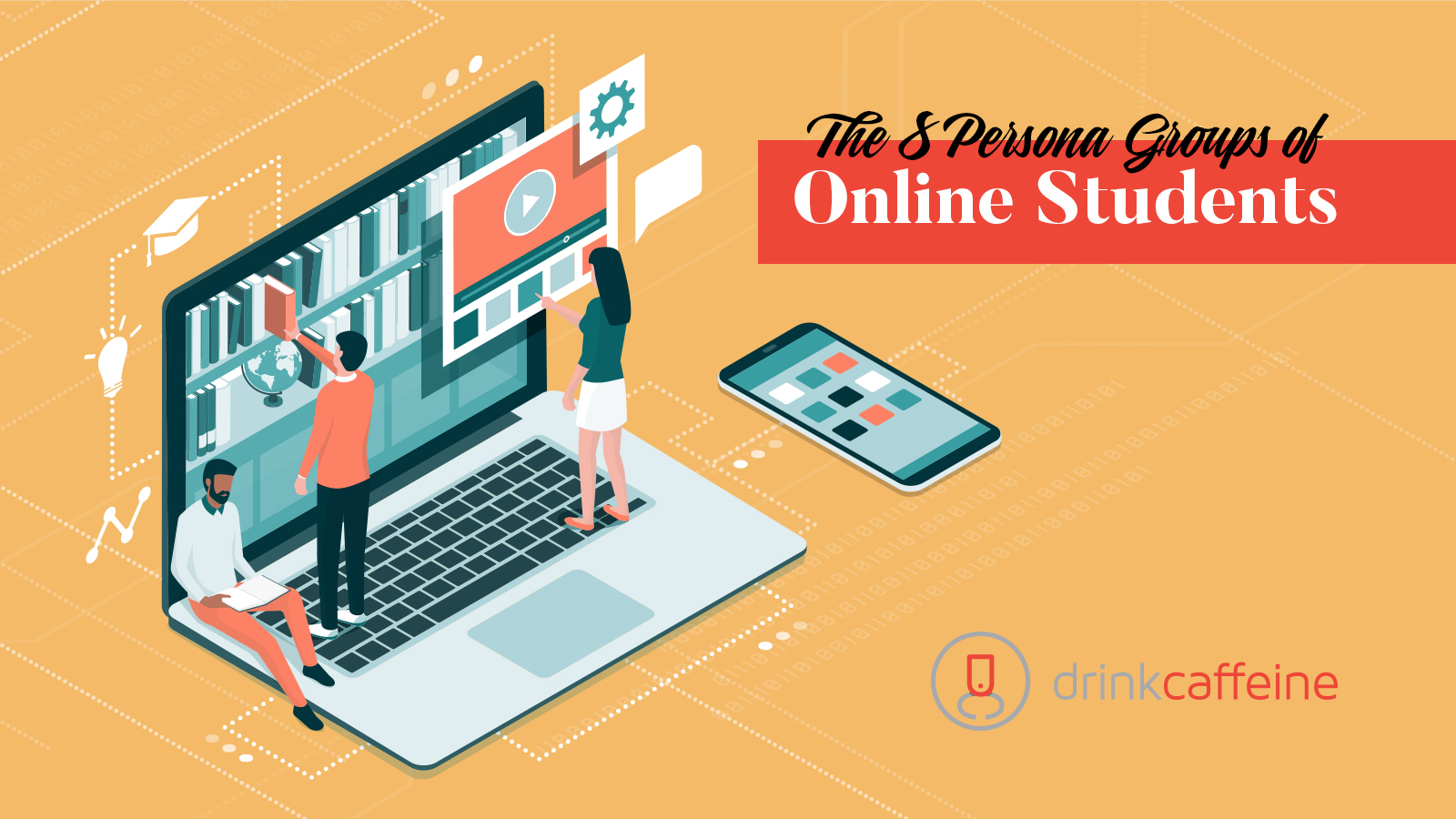
Understanding online degree-seekers
We recently conducted a research study of student personas for a leading, nonprofit, online college headquartered in the northeast (formerly part of the SUNY system).
The results reveal 8 distinct types of online students (which scale up to larger groups of potential students), each with differentiating life challenges and personal characteristics.
While online education personas will undoubtedly vary based on geography, demography, and other factors, education marketers may find it interesting to examine the personalities – and the realities – of these online degree seekers, all of whom are considering ways to get the credential that they believe holds the key to their professional and economic future.
3 categories & 8 cohorts
Category: Military
Summary: These 3 cohorts know discipline and hard work. They learned it through military service. Now they want validation of their worth. They want a roadmap. And with federal funding of their education, cost is not a factor.
Cohort: Young & Hungry
Profile
- Mostly male, age 23-30.
- Not successful academically, so they went into military.
- Service has shown them what they can do. They’re ready now to become a student.
- Pressed for time.
- Cost is not an issue: Government funded.
- Career track: In active service: Enlisted personnel, reaching for Sargent Major or CPO rank or officer training. Post military service: Police officer, state trooper, criminal justice system.
Attitudes about education
- “I wasn’t ready when I graduated high school. I am now. I was a —-head when I was 19, but not anymore.”
- “I need a degree to advance – whether it’s in the service or civilian life.”
- “I gotta make my move to do what’s right for me and my family.”
- “I know I have a future, but I need to make the most of it.”
- “Just tell me: What’s the plan? Where’s my roadmap? Break it down for me.”
- Duty first: “Transfers & deployment make education tough.”
- No online college brand preference: “If the military says it’s a good school, then it’s a good school.”
Cohort: Older Soldiers
Profile
- Mostly male, age 40-50, experienced military personnel.
- Mature, disciplined, self-motivated by intrinsic and learned values.
- Need to take one last big step in military career or get professionally positioned for civilian life.
- Needs the credential – not necessarily the skills or knowledge.
- Cost is not an issue; government funding is there.
- Career track: In service: E7 pay grade/Chief Warrant Officer. Post service: Business, management.
Attitudes about education
- This is important – for me and my family – but duty comes before education.”
- “I know how to work until the work is done.”
- Competitive: “I need a degree to advance – whether it’s in the service or civilian life.”
- “I have to put checks in boxes.”
- Understands advancement: Its value, how to do it, why to do it. “I know how tough it is to get ahead.”
- Chip on their shoulder: “Civilians don’t get me or my worth.”
- Busy, hectic lives; time is everything. “No time for bullshit.”
- No college brand preference: “If the military OK’s it, I’m fine.”
Cohort: Unsung Leaders
Profile
- Mostly male, age 45-55; similar to Older Soldiers but 5 years later in life.
- Experienced but not always recognized for accomplishments.
- They have families, spouses, ex-spouses, adult issues and complicated adult lives.
- Cost is not a determining issue.
- Career track: Post service: defense contractor, manufacturing, IT, health care, retirement.
Attitudes about education
Category: Healthcare
Summary: Both of these female-dominated persona groups are heavily burdened by professional and family obligations and money pressures. But the desire to succeed keeps them going.
Cohort: Nursing/ Current Caregivers
Profile
Attitudes about education
Cohort: Nursing/Experienced Realists
Profile
Attitudes about education
Category: General Education
Summary: These 3 persona types had their education interrupted by life events or different learning styles. They crave acknowledgement. They know the value of a dollar. They believe in themselves.
Cohort: Lapsed Learners
Profile
Attitudes about education
Cohort: Mature & Motivated
Profile
Attitudes about education
Cohort: Misfit Toys
Profile
Attitudes about education
Applying persona knowledge to content and UX
Having a precise understanding of the persona groups that make up an online education student body enables education marketers to do a few things:
In closing.
Education marketers are under constant pressure to generate and convert leads.
Investing in a detailed understanding of the institution’s key persona groups can inform and guide marketing decisions that, together, exert a steady, effective force that guides prospects deeper into the Application –Enrollment- Engagement funnel.
If you’d like to continue the conversation over a beverage, join us.

